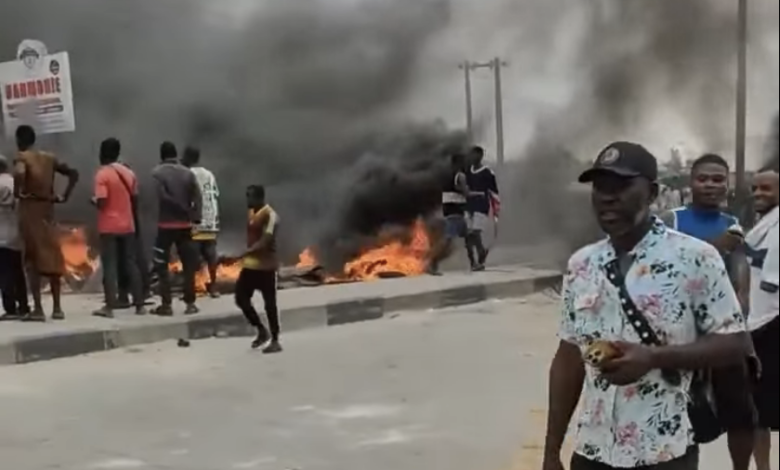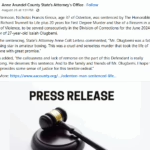Unrest in Ibeju-Lekki Following Fatal Police Shooting of Unarmed Man

On the evening of Thursday, August 28, tensions escalated in the Onosa community of Ibeju-Lekki after a police officer allegedly shot and killed an unarmed man. The tragic event also left two other individuals seriously wounded and receiving medical care. This incident has reignited widespread concerns about police brutality and accountability in the region.
Community Outcry and Mass Demonstrations
By early Friday morning, a large group of residents, predominantly youths, gathered to express their outrage. They blocked key thoroughfares, disrupting traffic and drawing attention to their demands for justice. Footage circulating on social media captured protesters chanting slogans, setting tires ablaze to barricade roads, and carrying the victim’s body in a vehicle as a symbol of their grief and protest.
Local eyewitnesses confirmed the location of the shooting as Onosa, with one stating, “Two people are currently hospitalized due to injuries sustained.” The community has vocally condemned the use of excessive force by law enforcement and is calling for a transparent investigation and prosecution of those responsible.
Official Response and Ongoing Investigation
In response, the Nigerian Police Force issued a statement urging calm and assuring the public that the injured are receiving treatment. Authorities confirmed that the officers involved have been detained and that a thorough inquiry is underway to ascertain the facts surrounding the incident.
“Normalcy has been restored in Ibeju-Lekki following the protest over the alleged killing of an okada rider by a police officer. The involved personnel are currently in custody as investigations proceed,” Lagos State Police reported via social media.
Context and Broader Implications
This event adds to a growing list of confrontations between Nigerian citizens and law enforcement agencies, highlighting ongoing challenges in police-community relations. According to recent data from the Nigerian Human Rights Commission, complaints of police misconduct have surged by 15% in the past year alone, underscoring the urgent need for reforms.
Similar protests have erupted in other parts of Lagos State, reflecting a nationwide demand for improved policing standards and accountability mechanisms. Civil society groups continue to advocate for enhanced training, community policing initiatives, and independent oversight to prevent future tragedies.

















0 Comments